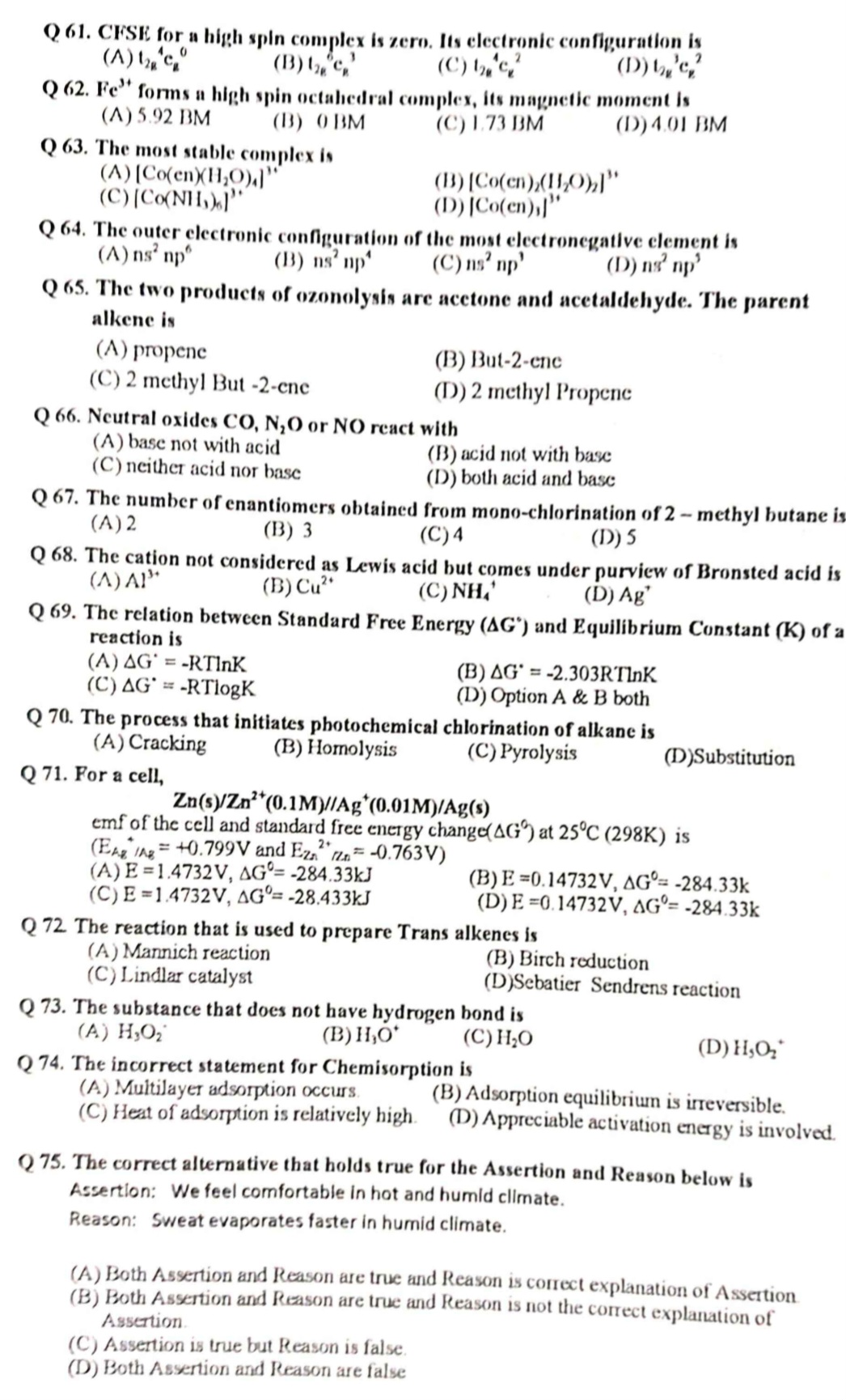CFSE for a high spin complex is zero. Its electronic configuration is? 2+ forms a high spin octahedral complex, its magnetic moment is? The most stable complex is? The outer elect... CFSE for a high spin complex is zero. Its electronic configuration is? 2+ forms a high spin octahedral complex, its magnetic moment is? The most stable complex is? The outer electronic configuration of the most electronegative element is? The two products of ozonolysis are acetone and acetaldehyde. The parent alkene is? Neutral oxides CO, N2O or NO react with? The number of enantiomers obtained from mono-chlorination of 2-methyl butane is? The cation not considered as Lewis acid but comes under purview of Bronsted acid is? The relation between Standard Free Energy (ΔG°) and Equilibrium Constant (K) of a reaction is? The process that initiates photochemical chlorination of alkene is? For a cell, EMF of the cell and standard free energy change (ΔG°) at 25°C (298K) is? The reaction that is used to prepare Trans alkenes is? The substance that does not have hydrogen bond is? The incorrect statement for Chemisorption is? The correct alternative that holds true for the Assertion and Reason below is Assertion: We feel comfortable in hot and humid climate. Reason: Sweat evaporates faster in humid climate.

Understand the Problem
The question includes multiple-choice chemistry questions covering various topics such as coordination chemistry, thermodynamics, oxidation-reduction reactions, and organic synthesis. It tests the understanding of chemical concepts and reactions.
Answer
Q61: C, Q62: A, Q63: D, Q64: D, Q65: B, Q66: C, Q67: A, Q68: C, Q69: A, Q70: B, Q71: A, Q72: C, Q73: A, Q74: A, Q75: D.
The answers are: Q61: C, Q62: A, Q63: D, Q64: D, Q65: B, Q66: C, Q67: A, Q68: C, Q69: A, Q70: B, Q71: A, Q72: C, Q73: A, Q74: A, Q75: D.
Answer for screen readers
The answers are: Q61: C, Q62: A, Q63: D, Q64: D, Q65: B, Q66: C, Q67: A, Q68: C, Q69: A, Q70: B, Q71: A, Q72: C, Q73: A, Q74: A, Q75: D.
More Information
These questions cover key concepts in coordination chemistry, organic chemistry, thermodynamics, and reaction mechanisms.
Sources
- Crystal Field Stabilization Energy - Chemistry LibreTexts - chem.libretexts.org
- 4.3: High Spin and Low Spin Complexes - Chemistry LibreTexts - chem.libretexts.org
AI-generated content may contain errors. Please verify critical information